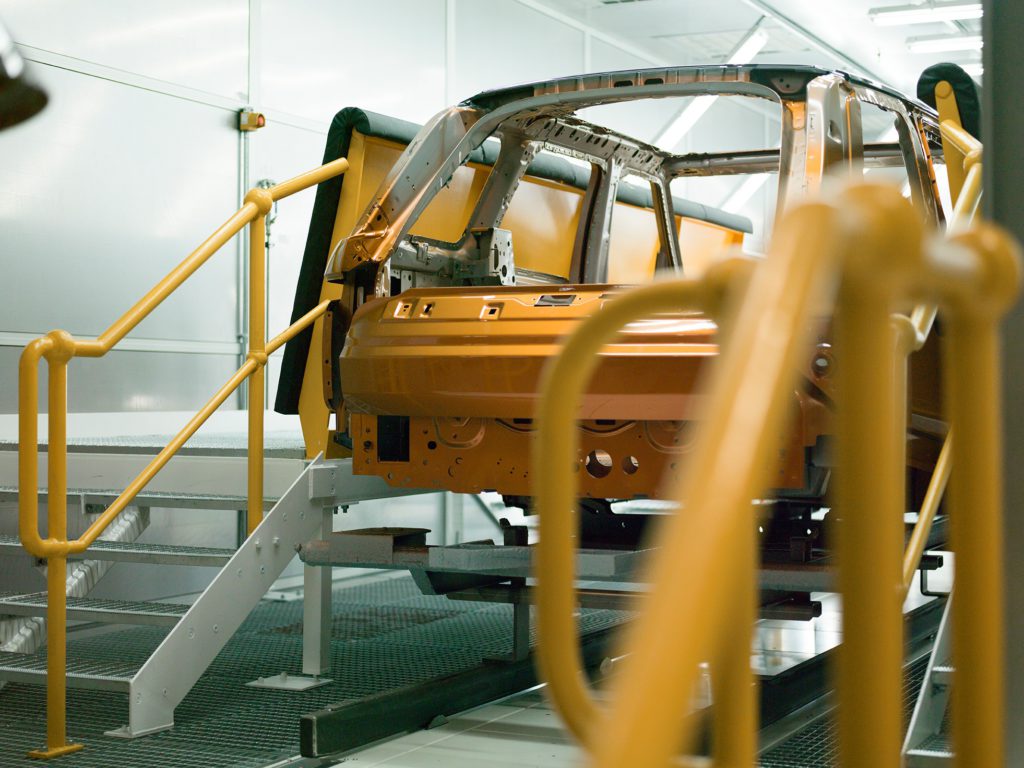JLR and Mini voice concerns over parts supply post Brexit
26 September 2018

26 September 2018
As the UK rolls closer to leaving the EU and with no clear deal yet in sight, carmakers are continuing to worry about the impact the situation could have on their businesses, with parts supply a major component in those thoughts.
Jaguar Land Rover (JLR), a company that has recently been vocal about the impact of the situation on its largely UK-based manufacturing business, has suggested that the split from the EU will affect plans to boost the proportion of parts made in the UK that it wants to achieve.
With the country breaking away from the EU on 1 April 2019, there is no clear deal yet on whether the UK will remain in the customs union or an alternative arrangement. Should no deal be agreed, a so-called ′hard Brexit’, there could be tariffs applied to imports and exports, and delays at boarders as customs checks are carried out.
This is affecting companies plans to invest in plants and manufacturing in the UK. JLR has been pursuing ′onshoring’ for several years after a surge in car sales made it viable for suppliers to improve their British footprint. Brexit has made this process harder.
Suppliers are holding off on adding capacity in the UK, JLR purchasing director Dave Allen said last month before his retirement. With the risk of tariffs in a no-deal Brexit, ′Why would they invest?’
In 2016, UK production hit a 17-year high of 1.7 million cars in 2016, and also saw record car sales. This made the country Europe’s third-biggest manufacturer for vehicles, spurring companies to seek local supply for parts. With components crossing borders several times in the manufacturing process, such a plan could save money in the future.
Brexit has encouraged the process, with 64% of manufacturers in England and Wales saying in the aftermath of the 2016 referendum that they planned to bring some manufacturing back to the UK by the time of the split, according to a Lloyds Bank survey. That was up from 58% a year earlier.
Mini shutdown
JLR is also moving the workforce at the Castle Bromwich plant to a three-day week, starting in October and continuing to December 2018. The move will affect around 1,000 staff but will allow the company to avoid job cuts. The carmaker has already suggested cutting production at its Halewood plant
′In light of the continuing headwinds impacting the car industry, we are making some temporary adjustments to our production schedules at Castle Bromwich,’ the company said in a statement.
BMW’s Mini brand is also making plans to protect itself should a hard-Brexit occur. The manufacturer has announced that it will move its annual plant maintenance shutdown from summer to 1 April 2019, the day the UK leaves the EU.
The company has said that this month-long stoppage on production at the plant in Oxford, which was recently selected to build the company’s electric Mini, is necessary to ensure that any issue affecting the supply of parts into the UK from its continental sources does not lead to production bottlenecks.
BMW built nearly 220,000 cars at its southern English Oxford plant last year, accounting for 13% of Britain’s total car production of 1.67 million units.
BMW said it was sticking by its British production sites, which also include a Rolls-Royce car facility, an engine facility and a fourth site which houses a press shop and subassembly.
′We remain committed to our operations in Britain, which is the only country in the world where we manufacture for all three of our automotive brands,’ BMW said.